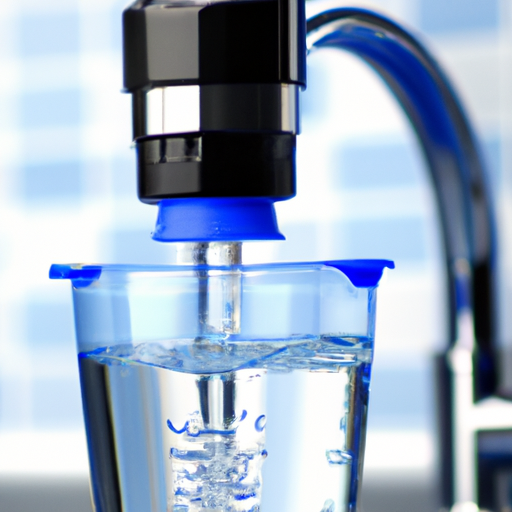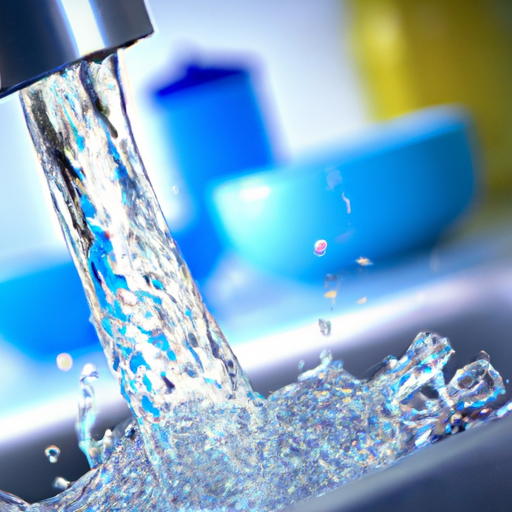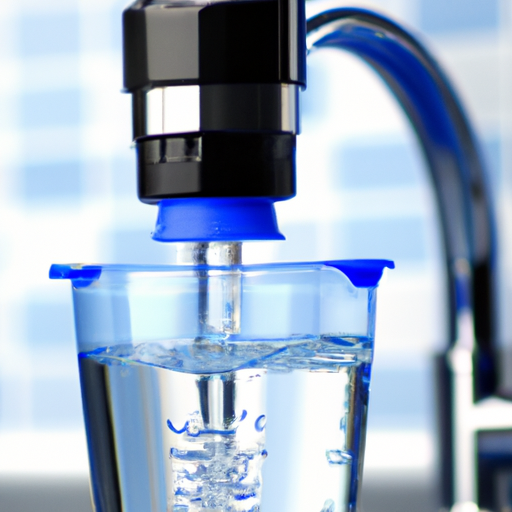Curious about the water filtration systems in these machines? You’re not alone! When it comes to water filters, different machines have different systems to ensure clean and quality water. Some machines use carbon filters, which work by absorbing impurities and contaminants like chlorine. Others use reverse osmosis, a process that effectively removes a wide range of contaminants, including bacteria and heavy metals. And let’s not forget about ultraviolet (UV) sterilization, a technique that kills bacteria and viruses using UV light. In our upcoming article, we’ll dive deeper into the different water filtration systems these machines have, so you can choose the one that suits your needs best. Stay tuned!
Types of Water Filtration Systems in Machines
When it comes to ensuring clean and safe drinking water, water filtration systems play a crucial role. These systems are designed to remove impurities and contaminants from the water, making it suitable for consumption. In this article, we will explore the different types of water filtration systems commonly found in machines, such as charcoal filters, reverse osmosis, and UV filters. We will also discuss the factors to consider when choosing a water filtration system and compare the various options available.
Charcoal Filters
Introduction to Charcoal Filters
Charcoal filters, also known as activated carbon filters, are widely used in water filtration systems. These filters are made from activated carbon, which is treated with oxygen to open up numerous microscopic pores. This increased surface area allows the filter to effectively trap and remove impurities from the water.
How Charcoal Filters Work
Charcoal filters work through a process called adsorption, where impurities are attracted and trapped by the activated carbon. As water passes through the filter, the activated carbon adsorbs contaminants like chlorine, pesticides, volatile organic compounds (VOCs), and other harmful substances. This process helps improve the taste and odor of the water.
Benefits of Charcoal Filters
Charcoal filters offer several benefits. Firstly, they are effective in removing many common water contaminants. This includes reducing chlorine levels, which can have a negative impact on the taste and smell of water. Charcoal filters also remove sediment and other impurities, resulting in cleaner and clearer water. Additionally, these filters do not require electricity to operate, making them cost-effective and environmentally friendly.

Reverse Osmosis
Introduction to Reverse Osmosis
Reverse osmosis is a high-pressure water filtration process that uses a semipermeable membrane to remove impurities from water. This system is known for its ability to produce purified water by removing even the smallest particles and ions.
How Reverse Osmosis Works
In the reverse osmosis process, water is forced through a semipermeable membrane, leaving behind impurities and contaminants. The membrane has tiny pores that allow only water molecules to pass through while blocking larger molecules like bacteria, viruses, and dissolved solids. This results in purified water on one side of the membrane and concentrated impurities on the other.
Advantages and Disadvantages of Reverse Osmosis
One advantage of reverse osmosis is its ability to remove a wide range of contaminants, including heavy metals, fluoride, nitrates, and bacteria. The process also improves the taste and odor of water by removing chlorine and other chemicals. However, reverse osmosis systems are typically slower than other filtration methods and may waste a significant amount of water during the process. Regular maintenance and filter replacements are also necessary to ensure the system continues to function effectively.
UV Filters
Introduction to UV Filters
UV filters, or ultraviolet filters, use ultraviolet light to disinfect water and kill bacteria, viruses, and other microorganisms. These filters are commonly used in conjunction with other filtration methods to provide a comprehensive water treatment solution.
How UV Filters Work
UV filters emit short-wavelength ultraviolet light that penetrates the cells of microorganisms, damaging their DNA and preventing reproduction. This process effectively neutralizes harmful bacteria and viruses, making the water safe for consumption.
Effectiveness of UV Filters
UV filters are highly effective in killing bacteria and viruses present in water. They are particularly useful in areas where microbial contamination is a concern. However, it is important to note that UV filters do not remove other impurities or particles from the water. Therefore, they are typically used alongside other filtration methods to ensure comprehensive water treatment.

Factors to Consider When Choosing a Water Filtration System
When selecting a water filtration system for your machine, several factors should be taken into consideration to ensure it meets your specific needs.
Water Quality
The first factor to consider is the quality of the incoming water. It is essential to know if the water source contains specific contaminants that require specialized filtration methods. Conducting a water quality test can provide valuable insights into the impurities present, such as heavy metals, bacteria, or chemicals.
Contaminants Removed
Different filtration systems are designed to target specific contaminants. Understanding the types of impurities a filtration system can efficiently remove is crucial in determining its suitability for your needs. For instance, if you want to eliminate chlorine and improve the taste of your water, a charcoal filter may be a suitable choice.
Maintenance and Replacement
Regular maintenance and filter replacement play a vital role in the performance and longevity of your water filtration system. Consider the maintenance requirements of each filtration method and the cost and availability of replacement filters. Some systems may require professional assistance for maintenance, while others can be easily maintained by the user.
Water Quality
Understanding Water Quality Standards
Water quality is an important consideration when it comes to drinking water. Various organizations and governmental bodies have set water quality standards to ensure the safety and potability of water. These standards provide guidelines on acceptable levels of various contaminants, such as chemicals, bacteria, and heavy metals.
Testing Water Quality
If you are unsure about the quality of your water, it is recommended to have it tested by a certified laboratory. This will help identify any specific contaminants and determine the appropriate water filtration system to address the issue.
Importance of Water Quality
Clean and safe drinking water is essential for maintaining good health. Poor water quality can lead to various health problems, including gastrointestinal issues, skin ailments, and even long-term health risks. It is crucial to invest in a reliable water filtration system to ensure the quality and safety of the water you consume.
Contaminants Removed
Common Water Contaminants
Water can contain a wide range of impurities and contaminants that may adversely affect its quality. Common contaminants include chlorine, sediments, pesticides, herbicides, heavy metals, nitrates, bacteria, and viruses. Understanding the specific contaminants present in your water will help you choose an appropriate filtration system.
Filtration Effectiveness
Different water filtration systems vary in their ability to remove specific contaminants. Research and understand the filtration effectiveness of each system before making a decision. Look for certifications and independent laboratory test results to ensure the effectiveness of the filtration system in removing targeted contaminants.
Additional Filtration Needs
In addition to targeting common contaminants, some individuals may have specific filtration needs. For example, individuals with compromised immune systems may require a filtration system that eliminates more bacteria and viruses. It is important to consider any additional filtration requirements based on specific health concerns or individual preferences.
Maintenance and Replacement
Filter Lifespan
Each water filtration system has a defined lifespan for its filters. It is essential to understand the replacement schedule and the expected lifespan of the filters to maintain the optimal performance of the system. Regularly replacing filters ensures the system operates efficiently and effectively removes impurities.
Cost of Replacement
Consider the cost of replacement filters when choosing a water filtration system. Some systems may have inexpensive initial costs but require frequent and costly filter replacements. Evaluate your budget and the long-term cost of maintaining the system to make an informed decision.
Ease of Maintenance
The ease of maintenance is an important consideration, particularly for individuals who prefer to handle maintenance tasks themselves. Some systems require professional servicing or complex maintenance procedures, while others can be easily maintained by the user. Consider your comfort level with maintenance tasks and choose a system that aligns with your preferences.
Comparing Water Filtration Systems
Performance Comparison
When comparing different water filtration systems, it is important to assess their performance in removing contaminants. Consider the specific contaminants each system can effectively eliminate and compare the results of independent laboratory tests. Look for certifications or performance guarantees to ensure you are choosing a reliable system.
Cost Comparison
Cost is another critical factor to consider. Compare the initial cost of the filtration system, including installation, with the long-term cost of maintenance and filter replacements. Consider the expected lifespan of the filters and the frequency of replacements to estimate the long-term cost accurately.
Installation and Space Requirements
Different water filtration systems have varying installation requirements. Some systems may require professional installation, while others can be easily installed by the user. Additionally, consider the space requirements of the system and ensure you have adequate space to accommodate the filtration unit and any additional components.
Conclusion
Choosing the right water filtration system for your machine is vital to ensure clean and safe drinking water. Consider factors such as the quality of your water, contaminants present, maintenance requirements, and cost when making your decision. By understanding the different types of water filtration systems, their benefits, and limitations, you can make an informed choice that meets your specific needs. Remember, clean and safe drinking water is essential for your health, and investing in a reliable water filtration system is a step towards achieving that goal.
